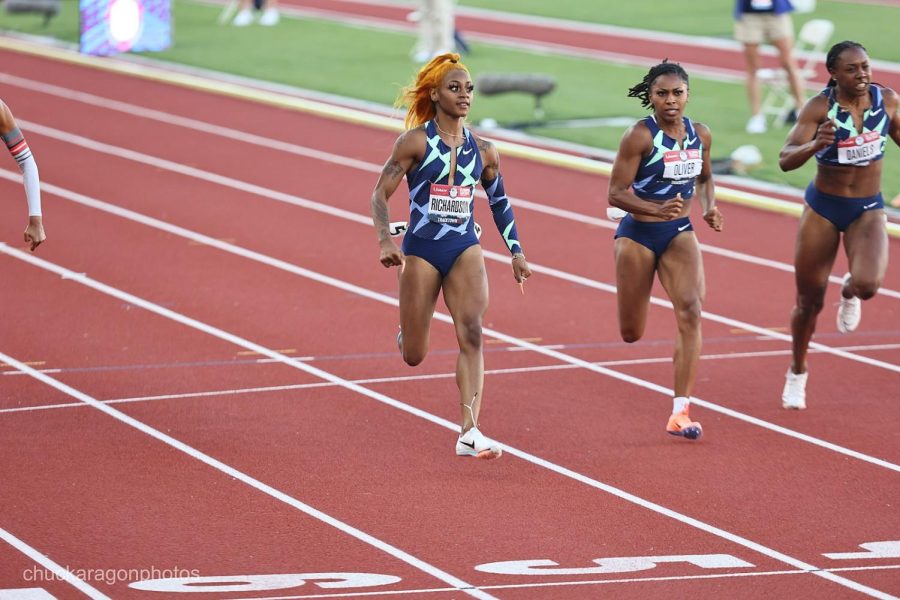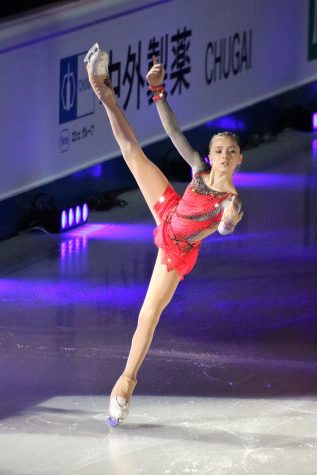Olympic Double Standards
Many are calling out the double standard across the Olympics after the difference in treatment between Kamila Valieva and Sha’ Carri Richardson, as a spotlight is put on cheating after the conclusion of the Winter Olympics.
A hectic Winter Olympics came to an end in Beijing just a few months after the conclusion of the summer Olympics. This time, the Olympics were filled with endless drama, revealing a double standard across different athletes and countries. We will be taking a deep dive into the Olympic double standard and giving our thoughts as to what should and shouldn’t be allowed at international competition.
Last summer, United States track and field athlete Sha’Carri Richardson, who was projected to finish in the top three in the 100 meter run, was suspended after testing positive for tetrahydrocannabinol, a drug found in Marijuana. It was later revealed that she had used Marijuana after the passing of her mother.
“
The only difference I see is I’m a black young lady
— Richardson
The only difference I see is I’m a black young lady
— Richardson
During the Winter Olympics, Russian athlete Kamila Valieva tested positive for the banned heart drug trimetazidine, which is said to increase stamina in athletes. She was still allowed to compete, which sparked outrage across the world. Countless celebrities and athletes called out the double standard that the International Olympic Committee holds.
“Can we get a solid answer on the difference of her situation and mines?” Richardson tweeted. “My mother died and I can’t run and was also favored to place top three. The only difference I see is I’m a black young lady.”
Such an instance has to raise the question as to what other variables have to be considered when comparing the two situations.
“There were other heart medicines available to be used and she took the one that was scientifically proven to enhance performance past just the basic health,” said senior skater Sophia Cummings. I consider those to be way more of like some kind of enhancer than what weed would be considered.”
Countless people on social media commented on the racial prejudice that the Olympic Committee holds, and believe that there is something wrong with the system that led to the racial bias.
There is no doubt that the decision to allow Valieva to compete after testing positive for trimetazidine was the wrong decision, especially given the fact that Richardson was banned just a couple months prior due to using a drug that was deemed as enhancing performance by “relaxing the athlete”, even though marijuana is scientifically proven to have far more negative effects to an athlete.. Findings include the fact that marijuana damages the structure of its users lungs and increases the risk of heart attacks, exponentially so, when its user is an athlete.
Valieva’s punishment after her positive test was decided by the Court of Arbitration for Sports. They determined that there would be “no provisional suspension” imposed on the athlete, citing that she is considered a “protected person” under the World anti-doping code and that preventing her from competing at these Olympic games would cause her “irreparable harm,” with concerns to her mental health.
This double standard that the Olympic committee holds can only be seen more clearly through the mental health issue, as Richardson only tested positive for THC after the death of her mother. We feel that there was no consideration given to Richardson’s mental health, as she was in a much worse situation than what Vaileva faced when she tested positive for a banned substance.
Another ironic aspect of the mental health claim came after Valieva’s final performance at the Winter Olympics, in which she struggled enormously and fell out of medal contention completely. The pressure placed upon her to perform after reports of her positive test for a banned substance came out only seemed to result in further harm for her mental health.
I think what really failed to be recognized was the difference between a performance enhancing drug and a drug. — Cummings 22'
However, these decisions brought up another major discussion — whether or not non-performance enhancing drugs should be allowed at international competition, as well as the rules and regulations that these organizations have. While many people believe that these individual athletes are to be blamed for their intake, we believe that the organizations themselves are who are truly at fault.
“I think what really failed to be recognized was the difference between a performance enhancing drug and a drug,” Cummings said. “Weed is more known to be like an antidepressant or relaxing drug. I disagree with the fact that they were so strict on Sha’Carri smoking weed, especially since it is legal in the United States. She didn’t commit a crime. I think cheating comes down to whether or not you are using your natural ability or you’re being enhanced by some type of drug.”




